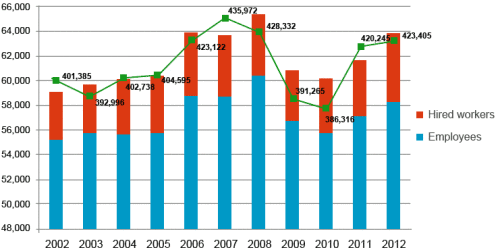The Netherlands benefits from the large number of air travel connections generated by the hub function of Amsterdam Airport Schiphol, the fourth largest passenger airport in Europe and 16th in the world rankings. The network of air travel connections is particularly important for international, knowledge-intensive companies and service providers in the Amsterdam region. As a result aviation creates considerable job opportunities in other sectors (otherwise known as catalytic employment).
The combination of air cargo and passenger flows is also of great importance to the network of intercontinental air links. As Europe’s third largest cargo airport, Schiphol specialises in handling cargo, such as floriculture, high-tech electronics, healthcare, fashion and chemical products, optical instruments, and parts for the automotive and aviation industries for around 800 European distribution centres in the Netherlands. Air cargo originating from and destined for the Netherlands is subject to practices that are less footloose than goods flows to rival foreign major airports. This is mainly due to the fact that the floriculture flow, for example, is linked to the presence of flower auctions.

The graph shows that roughly every 5.1 air transport movements (take-offs or landings) correspond to one full-time job at the airport. The stability of this relationship over time is due to the fact that every air transport movement has for many years generated an almost fixed amount of work in terms of supervising and handling ground and air operations processes: for example, every aircraft still needs to be connected, disconnected, serviced and refuelled.